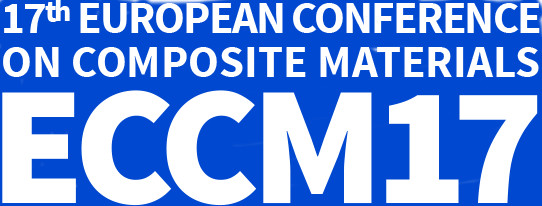

App-Einstellungen:
ARE FLAX-EPOXY COMPOSITES TOUGH?
Farida Bensadoun (KU Leuven) Ignaas Verpoest (KU Leuven) Aart Van Vuure (KU Leuven)
This study was to determine the influence of fibre architectures on the interlaminar fracture toughness of flax fibre epoxy composites.
ASSESSING THE FEASIBILITY OF NATURAL COMPOSITE FOR STRUCTURAL APPLICATIONS
Jeanne Blanchard (University of Southampton) Adam Sobey (University of Southampton) James Blake (University of Southampton)
A reliability assessment of a glass fibre composite grillage and the equivalent structure made of flax fibre reinforced composite was performed to investigate the applicability of natural composites to structural applications.
BACTERIAL CELLULOSE AS REINFORCEMENT FOR NATURAL FIBRE THERMOSET COMPOSITES
Marta Fortea Verdejo (Universität Wien) Koon-Yang Lee (Imperial College London) Alexander Bismarck (University of Vienna)
Natural fibre composites were manufactured using flax fibres as reinforcement and different thermoset polymers as matrix. The effect of introducing bacterial cellulose as additional binder to these composites was investigated.
CELLULOSE NANOPAPER COMPOSITES: INFLUENCE OF NANOPAPER CHARACTERISTICS ON COMPOSITE PROPERTIES
Andreas Mautner (Universität Wien) Koon-Yang Lee (Imperial College London) Wan Wan Nawawi (Imperial College London) Alexander Bismarck (University of Vienna)
Cellulose nanopapers are promising scaffolds for composites. This study aims to develop methodologies to vary the porosity of nanopapers enabling improved resin infusion and investigate the influence of nanopaper properties onto composite properties.
EFFECT OF FIBRE VOLUME CONTENT ON THE MECHANICAL PERFORMANCE OF NATURAL FIBRE REINFORCED THERMOPLASTIC COMPOSITES
Kunal Masania (ETH Zürich) Wilhelm Woigk (Institute of Polymer Engineering, FHNW) J. Rion (Bcomp AG) Clemens Dransfeld (University of Applied Sciences and Arts Northwestern Switzerland)
Here we aim to study the impregnation of the natural fibres by varying the provided amount of matrix material within the film stacking process. Along with correlating to properties, we show that in some applications higher vf is desired.
PROCESSING BAMBOO FOR STRUCTURAL COMPOSITES: INFLUENCE OF PRESERVATIVE TREATMENTS ON SURFACE AND INTERFACE PROPERTIES
Darshil Upendra Shah (University of Cambridge) Bhavna Sharma (University of Cambridge) Michael H. Ramage (University of Cambridge)
Engineered bamboo is being increasingly explored for infrastructure applications. We study the effects of two common preservation treatments, bleaching and steaming, on dynamic surface wettability and adhesive bonding properties of laminated bamboo.
EFFECTS OF THE NATURAL FIBER STITCHING ON THE IMPACT AND COMPRESSION AFTER IMPACT RESPONSE OF THE FLAX/EPOXY COMPOSITES
Mohammad Ravandi (National University of Singapore) Wern Sze Teo (Singapore Institute of Manufacturing Technology) Le Quan Ngoc Tran (Singapore Institute of Manufacturing Technology) Ming Shyan Yong (Singapore Institute of Manufacturing Technology) Tong-Earn Tay (National University of Singapore)
This study experimentally investigates the effects of natural fiber stitching on low-velocity impact response and compression after impact (CAI) stiffness of the continuous flax/epoxy composite laminates.
EXPERIMENTAL CHARACTERISATION OF THE IMPACT RESISTANCE OF FLAX FIBRE REINFORCED COMPOSITE LAMINATES
Karthik Ram Ramakrishnan (Ecole des Mines d'Alès) Stéphane Corn (Ecole des Mines d'Alès) Nicolas Le Moigne (Ecole des Mines d'Alès) Pierre Slangen (Ecole des Mines d'Alès) Anne Bergeret (Ecole des Mines d'Alès)
The impact resistance of biocomposites made of commingled flax and polypropylene fibres is investigated. The different modes of damage and the critical energy for penetration were identified. An FE model was also developed to simulate the response.
IMPREGNATED FIBRE BUNDLE TEST FOR NATURAL FIBRE COMPOSITES: FIBRES PROPERTIES
Farida Bensadoun (KU Leuven) Joris Baets (KU Leuven) Nina Graupner (University of Applied Sciences Bremen ) Jörg Müssig (University of Applied Sciences Bremen ) Peter Davies (IFREMER - Centre de Brest Marine Structures Group) Moussa Gomina (Université de Caen Basse-Normandie) Antoine Kervoelen (Université de Bretagne Sud - Limatb) Christophe Baley (LIMATB-UBS)
In this study, the Impregnated Fibre Bundle Test (IFBT), a common method used for the determination of carbon and glass fibre properties in composites, was adapted for flax and hemp fibres.
INFLUENCE OF FIBRE LOADING, FIBRE LENGTH, FIBRE ORIENTATION AND VOIDS ON THE CHARACTERISTICS OF COMPRESSION AND INJECTION MOULDED CELLULOSE FIBRE-REINFORCED POLYLACTIDE (PLA) COMPOSITES
Nina Graupner (University of Applied Sciences Bremen ) Jörg Müssig (University of Applied Sciences Bremen )
Focus of this study is the investigation of the influences of fibre loading, fibre orientation, fibre length and voids on the mechanical characteristics of compression and injection moulded lyocell fibre-reinforced polylactide (PLA) composites.
